Italy's right-wing government wants to set an example the rest of the EU can follow with its migration policy. But it ran into legal obstacles with its cornerstone project – to process asylum claims in Albania.
Prime Minister Giorgia Meloni's government has pointed out repeatedly this year that it has succeeded in reducing irregular migration, with the number of undocumented migrants entering Italy in 2024 down to around 40 percent of last year's arrivals figure.
The government says this is because many elements of its migration policy – from agreements with North African countries to the deal with Albania – are beginning to work.
The Albania plan
- The plan was actually announced in 2023, but building started in 2024. With this bilateral agreement signed between Italy and Albania, Italy hoped to process the asylum claims of people it classifies as non-vulnerable male asylum seekers in Albania, but under Italian law. This form of off-shoring is designed to speed up the asylum process, and allow anyone rejected to be sent back to their country of origin more easily without ever setting foot on Italian soil. Under the terms of the agreement, only those rescued in international waters by the Italian authorities, who don't immediately present as vulnerable and who are from a country deemed safe by Italy, can be taken to Albania. Once there, it was planned that asylum seekers would undergo medical checks, and a speedy asylum process.
- The estimated costs of the deal have been set at 650 million euros over five years. Around 252 million euros of the total sum will be used to cover travel between the two countries by officials of the Italian ministries of the interior, justice and health, ANSA reported.
- There were major delays with the opening of the centers. They eventually started operating in October. 16 migrants arrived on October 16 in the port of Shengjin, but almost immediately, four of them were sent back to Italy. Within 48-hours the remaining 12 were also returned to Italy.
Read AlsoItaly: What next for the government's Albania plan?
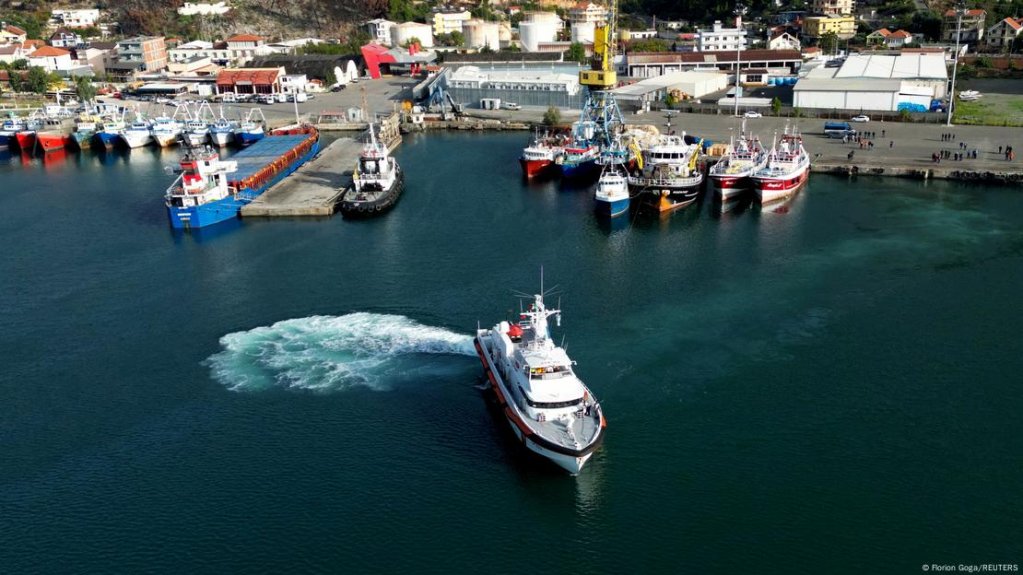
- A second group of eight migrants arrived on November 7, but ended up being transported back to Italy after the Italian migration tribunal in Rome referred the decision to the European court of Justice, instead of signing off on the government's requested detention order.
- The Italian government slammed the tribunal's decision, saying the Albania plan would be unworkable unless the courts accepted that countries like Egypt and Bangladesh are "safe" to send migrants back to. The government has appealed to the Italian Supreme Court for a reconsideration of this decision.
- Processes have now begun in both the Italian and the European system with judges deliberating over whether it is indeed legal to send certain groups of non-vulnerable asylum seekers from countries deemed "safe" by the government to Albania to have their asylum claims processed there, and be deported back to their own countries if refused.
- Even after the legal setbacks, the Italian government claimed that the deterrent effect of the deal was contributing to a significant reduction in the numbers of undocumented migrant arrivals in Italy this year.
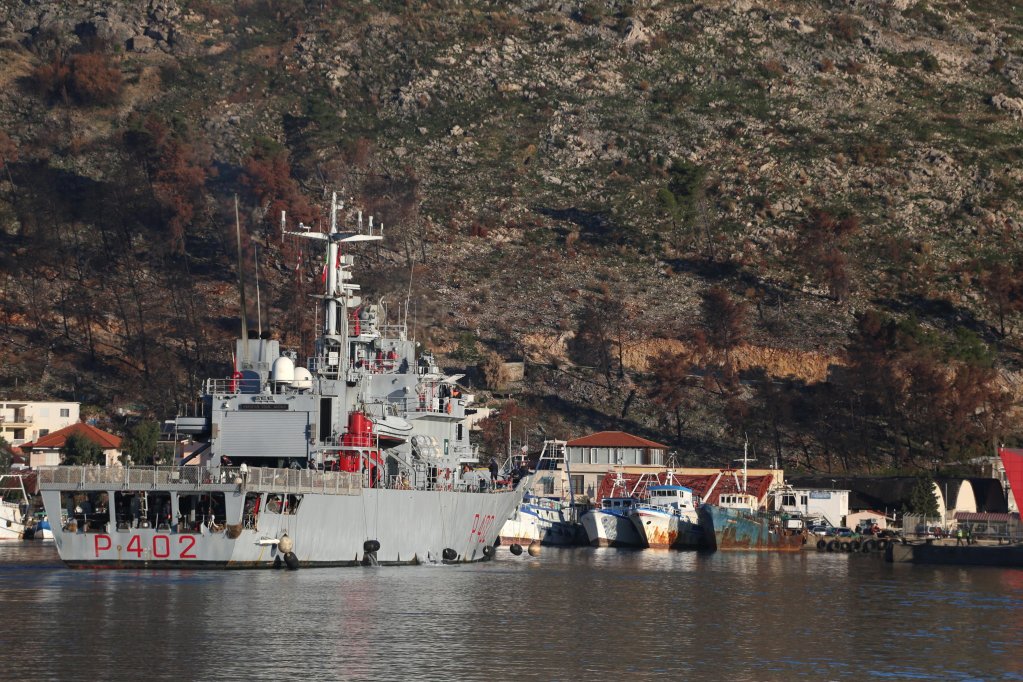
Arrivals reduced 'by 60 percent'
- The Italian government has claimed that the number of migrants reaching Italy by crossing the Mediterranean has dropped by 60 percent.
- A total of 65,472 migrants arrived on Italian shores between January 1 and December 27 of 2024, according to official figures. In 2023 during the same period, that number reached 153,677 and in 2022 the figure was 101,315.
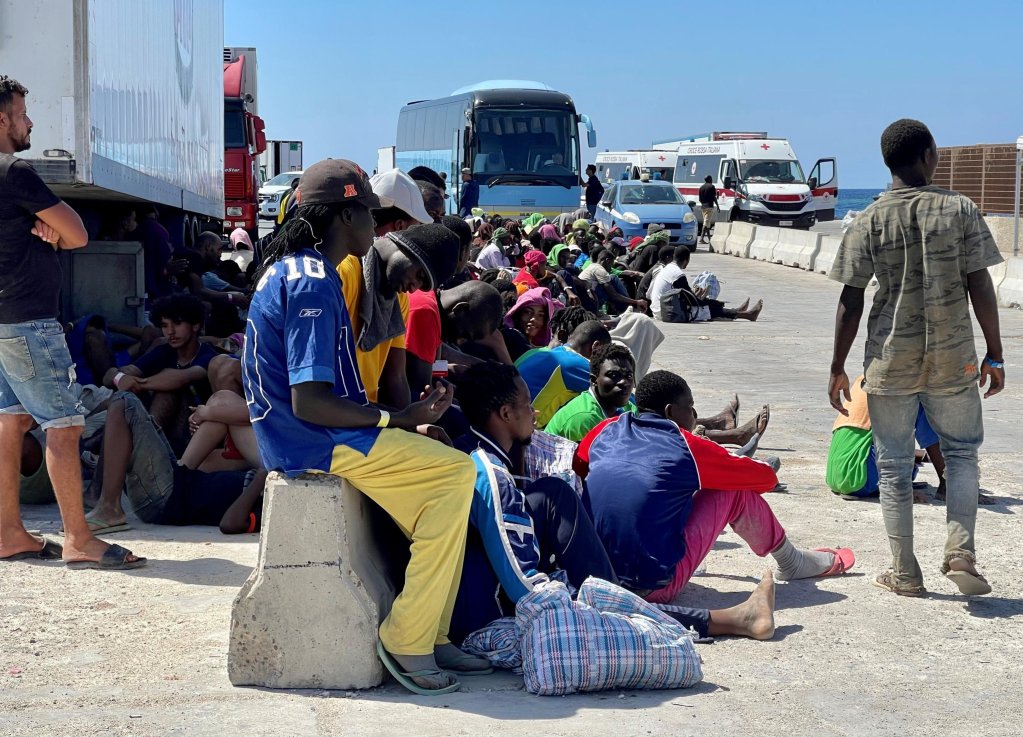
- During the first few months of 2023, the current government, who took power in autumn 2022, saw arrival numbers triple compared to the previous year over the same 3-and-a-half-month period.
- This year, the majority of undocumented migrants landing in Italy were nationals from Bangladesh (more than 13,700 people), closely followed by Syrian nationals (over 12,500 people).
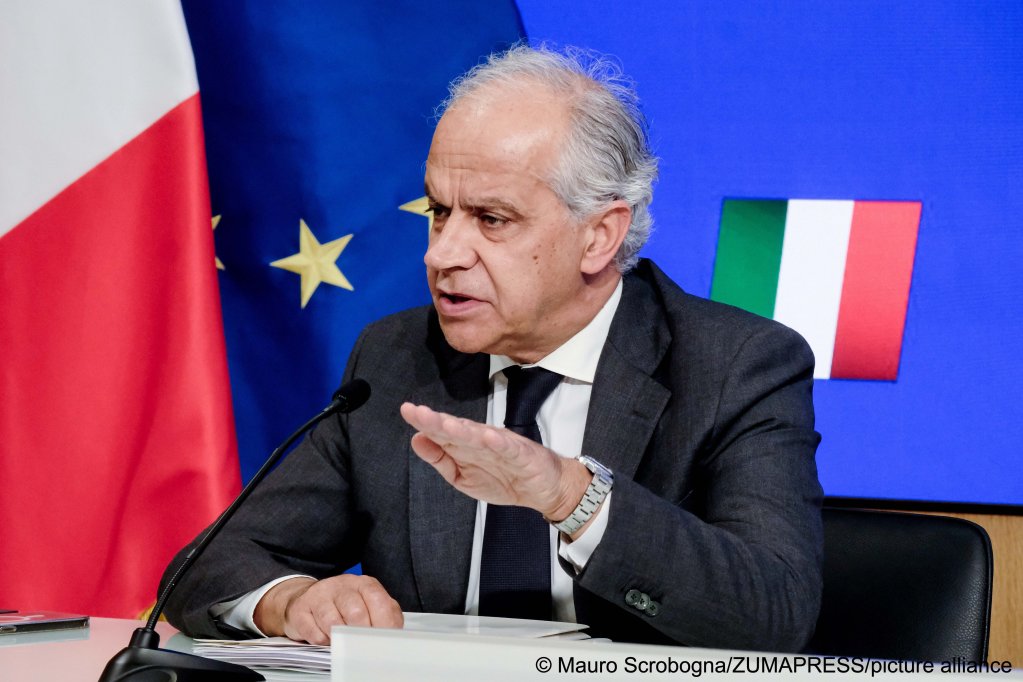
Decrees
The Italian government signed off on a number of emergency decrees this year which were sharply criticized by the opposition and migrant organizations.
- One of the first major reforms introduced by the current government and signed in January, 2023 – dubbed the Piantedosi decree – continued to affect the work of private rescue organizations that operate in the central Mediterranean in 2024.
- The decree has meant that migrant rescue ships operated by non-government organizations like Sea-Watch cannot carry out more than one rescue before returning to port. In addition, the practice of Italian authorities has been to instruct the ships to dock at distant ports, forcing them to spend many days sailing before they are able to return to the Central Mediterranean.
- Often, once the rescue ships reach port, they are fined and detained by the Italian authorities for alleged failures to comply with some of the provisions of the decree.
'Flows decree'
- A second decree, known as the "flows decree," passed by the Italian senate in May 2024, made the laws governing rescues even stricter. The organization SOS Mediterranée accused the Italian government of attempting to criminalize the actions of humanitarian NGOs and to "empty the Mediterranean of search and rescue vessels."
- "[The new decree] entails more sanctions, both with administrative detentions and with fines of up to 10,000 euros, including the possibility of confiscation of rescue ships," SOS Mediterranée said.
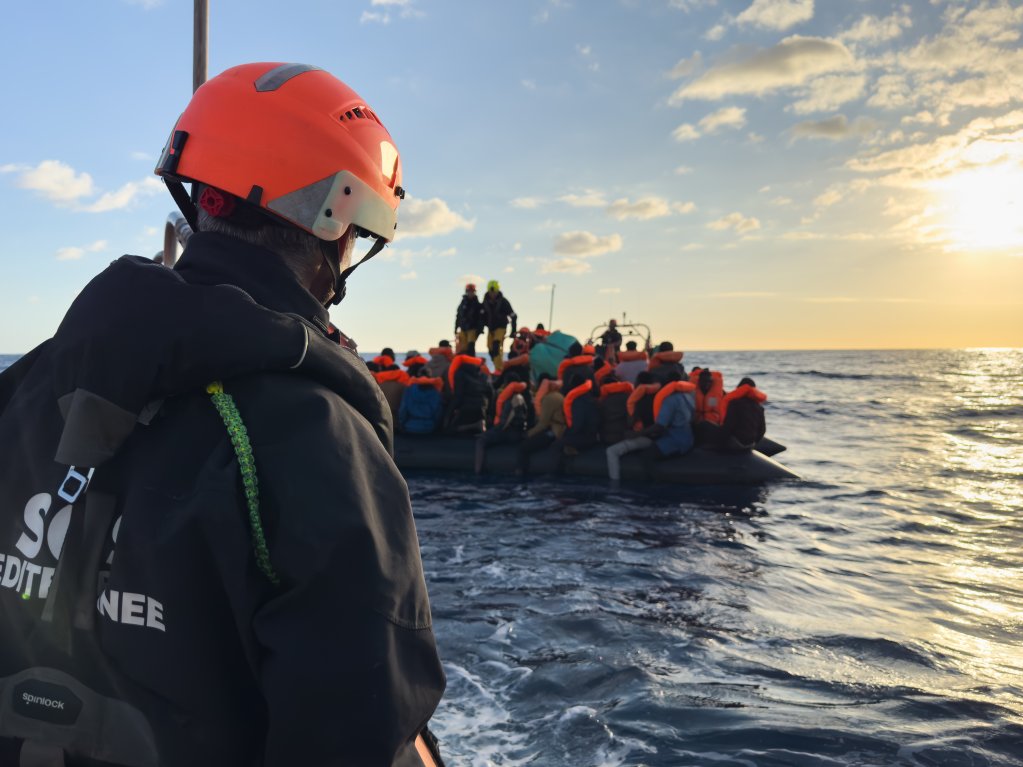
- Planes engaged in monitoring the central Mediterranean from above were also "targeted", according to SOS Mediterranée, and hindered in their work. The NGOs are concerned that the information they provide could also be intercepted by the Libyan coast guard, operating in the Libyan SAR, and used to locate boats for the purpose of returning the migrants to Libya.
- Eight organizations signed an open letter against the "flows decree" in December, including Emergency, Mediterranea Saving Humans, MSF, Open Arms, Resq, Sea-Watch, SOS Humanity, and SOS Mediterranee.
Albania plan and 'safe countries'
- The Italian government also issued two emergency decrees to try to make its Albania plan legally watertight. After Italian courts refused to sign a detention order, allowing asylum seekers to be processed in Albania, the Italian government issued a decree declaring certain countries, including Bangladesh and Egypt, unilaterally safe.
- Referring to an earlier European Court of Justice judgment, the Italian courts said that a country could not be declared unilaterally safe, since some areas or some categories of people might still be at risk.
Unidentified fast boats making rescues more difficult
- Civil rescue organizations like SOS Mediterranée identified a "new worrying trend in the central Mediterranean" in 2024. They said there were more and more "unidentified fast boats," operating in the Libyan search and rescue zone, which encompasses international waters.
- The crews of these unidentified boats often acted threateningly, telling the rescue ships to "leave the area," although they were in international waters, according to SOS Mediterranée. The civil rescue organizations reported being threatened and even fired on in an apparent attempt to deter them from carrying out rescues.
Italy as a role model
- Since Italy announced its plan to process asylum seekers offshore in Albania, it has been the focus of several countries across Europe.
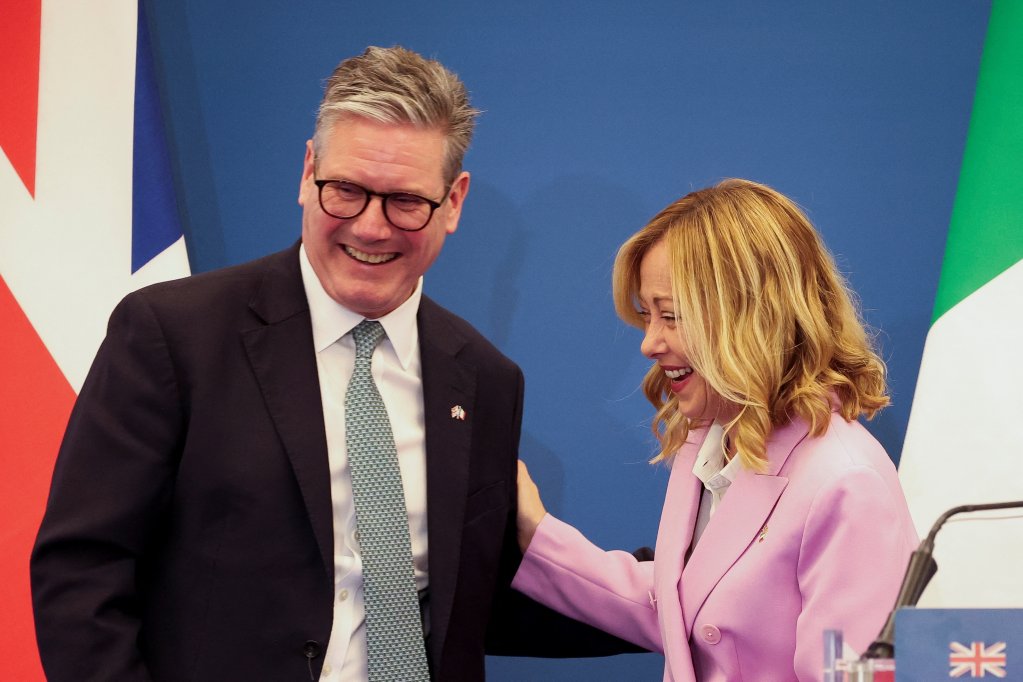
- The British Prime Minister Keir Starmer visited Italy after taking office in July, saying he wanted to study the Italian methods of achieving such significant reductions in the numbers of undocumented migrant arrivals.
- Countries like Germany, Austria and Denmark also said they were interested in seeing whether offshore processing might work.
- The president of the European Commission, Ursula von der Leyen, also said Italy could act as a model for the rest of the EU.
Deals with North Africa
Italy has been at the forefront of brokering deals between the EU and North African countries such as Libya and Tunisia. This has continued under the premiership of Giorgia Meloni.
- In October 2024, the prime minister signed a series of deals in Libya on investment and support for infrastructure projects, as well as continuing funding to the Libyan coast guard and authorities to help them manage migration.
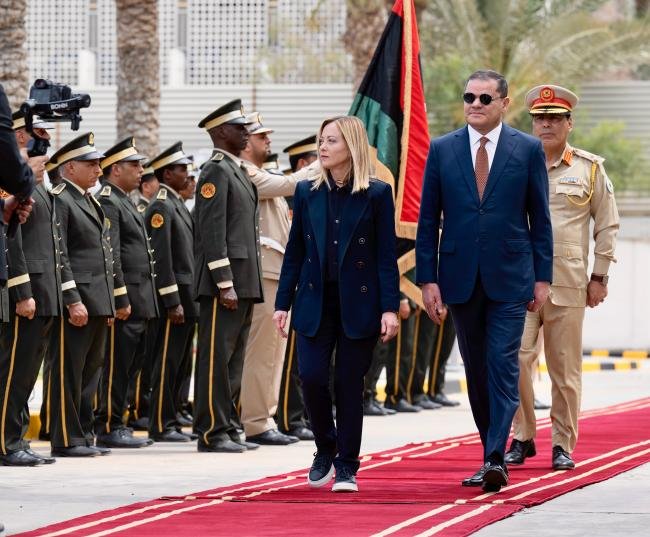
Mattei plan
- These agreements are part of the Italian government’s Mattei plan for Africa announced in January 2024. Italy hopes the plan will help reposition it in the shifting geopolitical landscape in Africa. It wants to play a role in energy security and economic development, and make sure that fewer migrants reach Italy across the Mediterranean.
- Meloni promised an initial endowment of 5.5 billion euros in a series of credits, grant operations and guarantees.
Tunisia
- By April 2024, Meloni had visited the Tunisian capital Tunis for the fourth time in less than a year.
- In October 2024, despite numerous allegations of human rights abuses against the Tunisian government, it was reported that the EU would be unable to claim repayment of the money promised to Tunisia in the July 2023 deal.
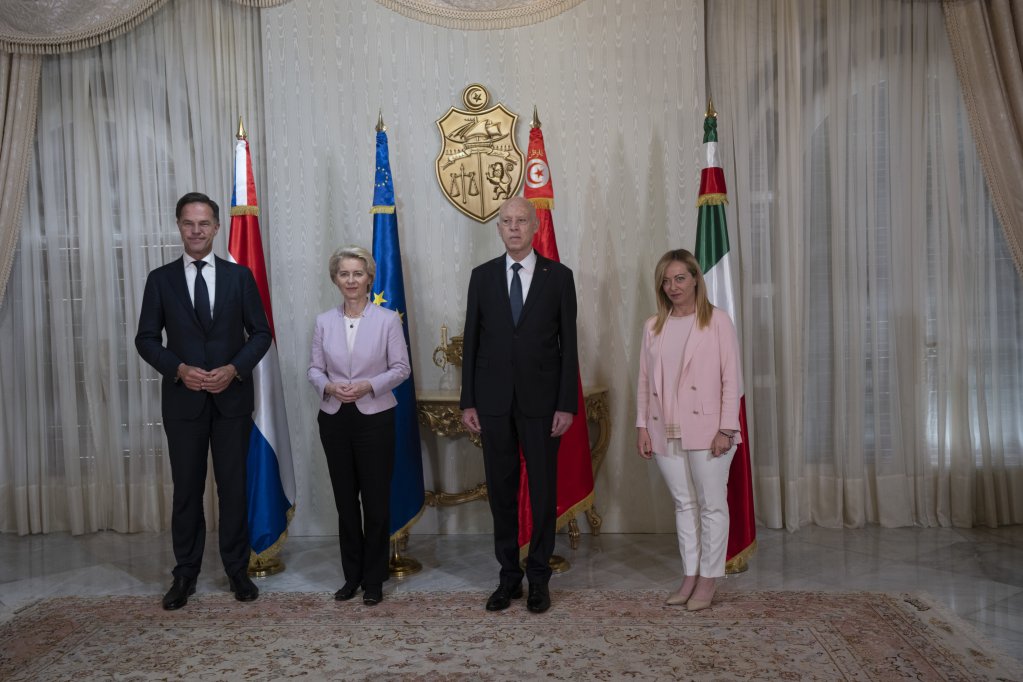
- Investigations by journalists, including at The Guardian, as well as allegations from UN bodies and NGOs, point to myriad abuse and allegations of widespread violence, detention and even rape by the Tunisian authorities, some of whom may be supported with EU funds to manage migration.
EU funding
- Catherine Woollard, the director of the European Council on Refugees and Exiles, says deals such as that between the EU and Tunisia, which are aimed at stopping people from reaching Europe by boat, make human rights abuses inevitable.
